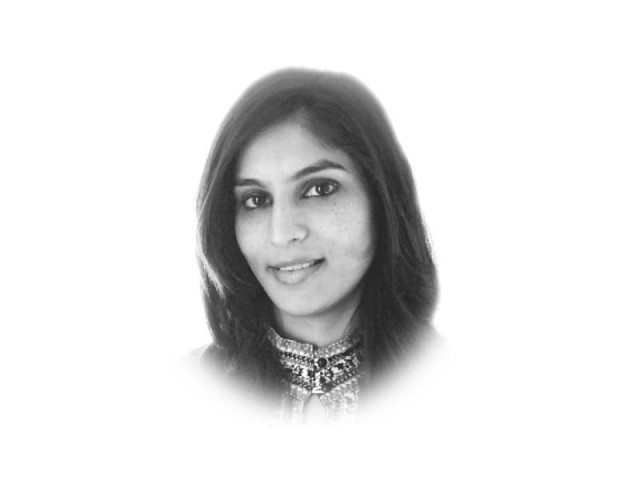Uncomfortable questions
Suppose for a few minutes that we were to ask uncomfortable questions of Imam Kaaba, what would those be?

The writer is a freelance writer based in Islamabad. She blogs at www.aishasarwari.wordpress.com. She can be followed on Twitter @AishaFsarwari
Suppose for a few minutes that we were to ask uncomfortable questions of our guests, what would those be? Four spring to mind a little too immediately. The first: what exactly does the word ‘Muslims’ entail? As great as unity against an evil foe sounds, there are many who consider themselves Muslims yet don’t quite fit the bill of the great protector of the Kaaba’s definition of Muslim. As a result, there is some rank pulling.
Also, the privilege of the Muslim male cannot be ignored entirely either. The only country to ban women from driving, Saudi Arabia, can be a bit of a dangerous influence for our developing economy which already struggles with acute problems with respect to gender inclusion in the workforce. The annual Gender Gap Index by the Geneva-based World Economic Forum released last year showed Pakistan ranked 141 out of 142, which made it second to last in global gender equality. While the mighty can afford it with the oil wells and empires of astute financial investments, we really cannot. Women are as important to Pakistan as perhaps oil is to the Saudis. Our founder, Mohammad Ali Jinnah, called women a greater power than even the pen. Sadly, none of the gregarious receptions held in the honour of the great Imam had any worthy women in attendance. Very telling of the times to come if the friendship grows.
Thirdly, can something be done to secure the status of about a million Pakistanis working in Saudi Arabia? Majority of low-scale workers in Saudi Arabia from Pakistan are treated no less than second class citizens, which rides on Arab superiority. The Human Rights Watch calls it “near-slavery” and says many migrant workers face “arbitrary arrests, unfair trials and harsh punishments” and may falsely be accused of committing crimes. According to The Independent, in 2010 alone at least 27 migrant workers were executed. Where such reports can be a bit unpalatable, fiction can allow more room for truth. In his short story called A Mason’s Hand, Ali Akbar Natiq illustrates how a migrant worker with stars in his eyes about escaping Pakistan and working in the Holy Lands is exploited and left disillusioned. Tragically, this story is far too common outside the pages of a fiction book.
Lastly, what has Saudi Arabia’s role been in the unregulated and unchecked fattening of radicalised madrassa graduates? Even the clamour post-9/11 could not dent the burgeoning of these seminaries across Pakistan starting from the Ziaul Haq era. These grew mostly with the support of Saudi petro-clerics. Some experts claim that blended with tribal culture, the ideology that was fostered was a Talibanisque blend of mores. Pakistan has suffered as a result and what is now a mafia goes limping back for more funds because these are now a formidable force of street power.
Imam Kaaba Sheikh Al-Ghamdi did answer the comfortable questions though. Addressing one congregation he first said that violence can have no justification and that Islam deplores it; Muslims should seek knowledge and educate themselves; parents should ensure they vaccinate their children against polio and most importantly that believers should respect one another’s religious differences.
After the sermon, there was no question and answer session that followed.
Published in The Express Tribune, May 8th, 2015.
Like Opinion & Editorial on Facebook, follow @ETOpEd on Twitter to receive all updates on all our daily pieces.














COMMENTS
Comments are moderated and generally will be posted if they are on-topic and not abusive.
For more information, please see our Comments FAQ